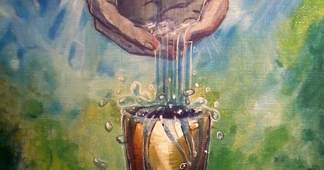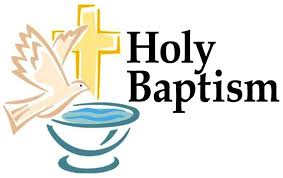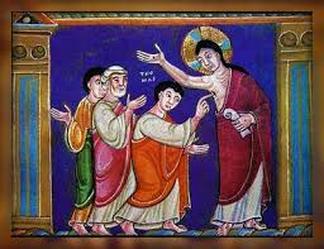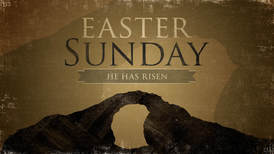
Psalm 23, Acts 4:5-12, 1 John 3:16-24, John 10:11-18
Today is a cup that overflows day. Today I have the joy to become your pastor. If that weren’t enough, I have the joy to be pastor to not only the First Presbyterian Church of Merrick, but also to the Community Presbyterian Church of Merrick as well – two churches beginning a cooperative ministry together. What an exciting, unfolding venture we are entering into.
We have the blessing to enter into the life of faith and our love for our Lord Jesus Christ. We have the blessing to get to know each other and share our struggles and strengths. We have the privilege to journey into the next chapter of ministry, as we pray for it, envision it, and create it together. We have the joy and honor to worship together. To pray together. To deepen our knowledge of the scriptures and Christ’s way together. We have the hope, we have the confidence that the Spirit will nourish us, guide us, prepare us to walk the right paths for His name’s sake – to love in truth and action, to serve each other and to engage in ministry to the larger community where God is calling us to. Is this overwhelming? Perhaps. I believe It wouldn’t be God’s handiwork unless we felt stretched a little over our heads. It’s God’s work after all. It’s been God’s effort that has brought us together. He is the Shepherd. We are the sheep. Overwhelming, OK, but more to the point, I say, my cup overflows. Today, we affirm: our cup overflows.
My cup overflows. Please say it with me: My cup overflows. My cup overflows not from the tasks that lay ahead – the meetings, the paperwork, finding my way around Freeport and Merrick – along with the nitty gritty of ministry – my cup overflows because this cup is in the hand of the one doing the pouring – Jesus. He pours his love into my cup. He pours his very life into my cup. He fills my cup with blessings, with spiritual nourishment. In this cup I find guidance. In this cup is restoration, when my soul is tired and weak. When toxic or evil elements have tried to seep into this cup, he has protected me. Even when this cup has cracked from danger or pain or heartbreak – He has been the glue that has put the pieces back together. I do not lack for anything. My cup overflows.
My cup overflows. In ancient times, when a host would receive a guest, not only would there be abundant, extravagant amounts of food – like Abraham’s lavish treatment of his three guests at the oaks of Mamre (Gen. 18: 1-8) – but the host would intentional overfill the cup, and allow it to run over, to signal that the guests where most welcome and could stay as long as they needed.
God does this for us. Jesus declared, “I have come that they might have life, and have it abundantly” (John 10:10b). We are created for the abundant life. We are meant to overflow. Our cup overflows every minute of every day. What it overflows with depends on who we allow to do the pouring, in whose hand holds our cup. Our cup overflows depending and what we allow inside the cup. It is true, we can overflow with fear. Or judgment. We can overflow with resentment or bitterness. Or we can overflow with loving kindness. We can overflow with joy. We can overflow with peace. It all depends on who we allow to hold the cup. It all depends on who is doing the pouring. One thing I know today is that my cup overflows.
Jesus says we are meant for the abundant life. The image he chooses to help us understand this is by referring to himself the Good Shepherd. Jesus doesn’t call himself the Good Carpenter. He doesn’t call himself the Good Professor. He doesn’t call himself the Good Soldier. He doesn’t call himself the Good Emperor. He calls himself the Good Shepherd.
Jesus identifies with Shepherds because of their absolute devotion to their flock. They pour their lives into caring for the sheep. Jesus is the shepherd in Luke’s parable who will leave the flock to find one lost, scared sheep. Jesus is the shepherd who acts as a gate for the sheep, keeping predators at bay. Jesus knows his sheep: he knows his sheep, he knows they are defenseless, he knows they lack direction and need to be led, he knows they become restless and need attention, he knows if they fall they cannot get back up on their own, he knows their wool is constantly growing and needs grooming, he knows they are picky eaters and need plenty to drink. Jesus compares us to the endless overflowing needs of sheep. The Good Shepherd Lord meets our constant needs. My cup overflows.
Jesus declares he is the Good Shepherd. Every day he nourishes us with his bread and body. He provides living water. He provides rest. He guides us. He rescues us when we are lost. He is with us peaceful times. In the dark and troubles, in times when oppression sits across the table from us. This is a shepherd who does not fill our cup halfway or part way, not just all the way to the top, but he makes our cup overflow. With each overflowing drop He says, you are welcome. With each overflowing drop, He says, I want you with me. With each overflowing drop, He says, you are prized and precious to me. My cup overflows not from an abundance of material success or worldly goods, but because of the abundance of care my Shepherd Lord pours out in me. He lays down his life for me. Today I hear his voice and I declare, my cup overflows.
My cup overflows with the presence and love of our Shepherd God. Because of who holds my cup, because of who is doing the pouring, I am released from my endless wants. I have what I need. Because of who holds my cup, because of who is doing the pouring, I shall not fear. As we embark on our journey together, we can declare, My cup overflows.
Now there will be times, no doubt, when our cups may feel bone dry and empty, with not a drop to be found. We will be tempted to focus on our lack. Like the silly sheep that we are, we get lost in that dark valley. There are many dark valleys churches get stuck in. We get worried about membership numbers that have been on a downward trend for decades. We are alarmed by deficits. We are concerned about aging buildings. Of course, we have anxieties and cares. We’re sheep after all. Sheep are not known for the intelligence or sense of direction. So, we need help standing. “and stand we will” the apostle Paul reminds us, “For the Lord is able to make us stand” (Romans 4:4). So together we will learn that when we are tempted, or when we stumble or fall, to keep “keep our eyes on Jesus, who leads us and makes our faith complete” (Hebrews 12:2).
Our spiritual calling as a church community will be to train our eyes, teach our hearts, and guard our minds, in those valleys of worries and challenges we face. We are to learn together to redirect our attention to our Shepherd Lord. To follow his voice. This is we will come to know deeply the depths of our gracious God’s love and care. We have a ceaselessly loving God who pours living waters into our cups. Every second of every day. At this very moment, right here, right now, the divine Good Shepherd Jesus is pouring out his love, his healing his guidance into our hearts. He is shepherding us as we speak. God loves us and envelops us with his life. Because of this I say, my cup overflows.
We are created to experience life overflowing not just when times are sunny and bright, but when times are challenging and dark. This is the Christian path. In the process we learn valuable lessons. When our cups feel empty God uses us to fill each other cups. So, when I’m empty God uses you to fill me to overflowing. When you fill sucked dry from too many troubles, it is the people sitting next to you who can add their drops. God uses us, drop by drop, in the living and caring, to make each of us overflow. Worshiping together, praying together, serving each other and the community we create overflowing cups. God directs our overflow to where ever it is needed. An overflowing church naturally overflows into the community. Praise be, my cup overflows.
Can we declare together, the age-old declaration of faith, my cup overflows.
The Christian theologian Tertullian noted at the end of the second century, as the churches were persecuted, that while pagan temples spent their overflow on “feasts and drinking bouts,” Christians spent theirs to “Support and bury poor people, to supply the wants of boys and girl destitute of means and parents, and of old persons confined to the house.” The Emperor noted “The impious Galileans (he means us) support not only their poor, but ours as well.”
You see? The church triumphed because its cups overflowed with the love and goodness of God in spite of trials and God directed the overflow to care for the sheep of other flocks. This is our grand inheritance as Christ followers. It is our destiny. Let Jesus hold the cup. Let Jesus do the pouring. Today we hear his voice. Today we follow his lead. Today, my cup overflows. It overflows indeed. Thanks be to God! http://www.patheos.com/blogs/christiancrier/2015/11/16/my-cup-runneth-over-bible-verse-meaning-and-study/#gZfSV4exQrta2CoG.99



 RSS Feed
RSS Feed